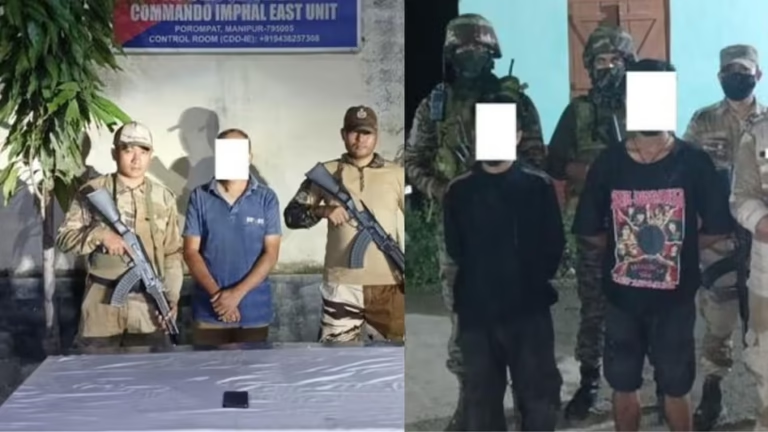Sex Racket Busted in Surat Hotel — 13 Thai Women Rescued, Arrests Follow
Surat Police’s Anti-Human Trafficking Unit (AHTU) raided a hotel in Jahangirpura (Park Pavilion/Hotel Pavilion) after a tip-off and rescued 13 Thai women believed to be forced into prostitution; multiple people were detained — reports vary (Hindustan Times reports 9 arrested while India Today placed the figure higher) — and electronic evidence including phones and cash was seized as the case is investigated under anti-trafficking laws.
What happened — the basics
Late on a recent night in Surat, the city’s Anti-Human Trafficking Unit carried out a raid on a hotel in the Jahangirpura area (reported as Park Pavilion / Park Pavilion Hotel / Hotel Pavilion in different outlets). Officers entered a fourth-floor premise after receiving intelligence about illegal activity, found women of Thai origin inside, and moved to rescue them and detain suspects connected to the operation. The immediate operation also resulted in seizure of electronic devices and cash that police say will help piece together how the racket functioned.
The numbers — rescued, detained and why they don’t match across reports
Here’s the funny (and frustrating) thing with breaking news: different outlets use different snapshots and police briefings evolve. The consistent fact across multiple outlets is that 13 Thai nationals were taken out of the hotel by police.
Where the numbers diverge is in how many suspects were arrested. Hindustan Times reported 9 arrests at the time of their story, whereas India Today and some local outlets reported a larger number — in some cases naming as many as 22 detained, including the foreign women. That difference likely reflects two things: (a) whether the count includes the rescued women as “detained for questioning” versus “rescued” and (b) later follow-ups where additional arrests were made as investigations widened. When police operations are ongoing, expect tallies to change.
A helpful way to read the wire: the fixed anchor is the raid and the 13 Thai women rescued. The shifting numbers around arrests are normal for an unfolding probe — they’ll stabilize as the Jahangirpura police and AHTU file formal charges.
How these rackets often run — a quick explainer
If you’ve ever wondered how a city hotel becomes the center of a trafficking or prostitution racket, think of it as a small, secret supply chain:
- Recruitment/entry: Women may be brought into the country on tourist visas or other short-term permits. Reports suggest some of the Thai women showed only digital copies of passports and not the originals at the time of the raid — a red flag investigators noted.
- Marketing & booking: Modern rings use WhatsApp groups, social media DMs, classified ads or private contacts. Authorities reported that the racket used digital channels to reach clients and arrange meetings.
- Payments & routing money: Many operations prefer digital payments today. Police reports in similar cases have found QR codes linked to bank accounts used to collect fees from clients; that creates trail evidence but also a quick way to launder and distribute money. In the Surat case, investigators seized mobile phones and alleged evidence of QR-linked payments.
- Control mechanisms: Isolation from outsiders, confiscation of original travel documents, threats, debt bondage and restricted movement are common control methods. Whether these specific elements applied here will be part of the probe
So, while the physical scene may look like a few hotel rooms, behind it is a chain of recruitment, logistics and payment — and that chain often stretches across cities and borders.
5 FAQs
Q1: How many people were arrested in the Surat raid?
A: Early reports differed — Hindustan Times reported 9 arrests while India Today and other outlets reported higher numbers (some cited up to 22 detained). These disparities usually reflect evolving police counts and whether rescued persons are temporarily held for questioning. Always check the official police communique for the final tally.
Q2: Were the rescued Thai women trafficked or working voluntarily?
A: At the time of initial reports, authorities were investigating. Rescue is the first step; police, social services and consular officials typically interview the women to determine whether coercion or trafficking occurred. Reports noted some had only digital passport copies, heightening concerns about their migration status.
Q3: What laws are used to prosecute such rackets in India?
A: Cases typically involve the Immoral Traffic (Prevention) Act (ITPA) and relevant sections of the Indian Penal Code related to trafficking, exploitation and related crimes. Immigration rules may also apply when foreign nationals are involved.
Q4: How can hotels prevent becoming hubs for illegal activity?
A: Strong guest verification, clear recordkeeping, staff training to spot red flags, cooperation with local police, and strict internal policies on room bookings and third-party introductions reduce the risk of exploitation occurring on premises.
Q5: How can the public help victims after a raid?
A: The best help is coordinated support: donate to reputable NGOs that specialize in trafficking survivor care, volunteer with local shelters, or assist by spreading verified resources (hotlines, legal aid contacts). Do not attempt to contact or “rescue” victims directly — that can retraumatize or complicate legal processes.




